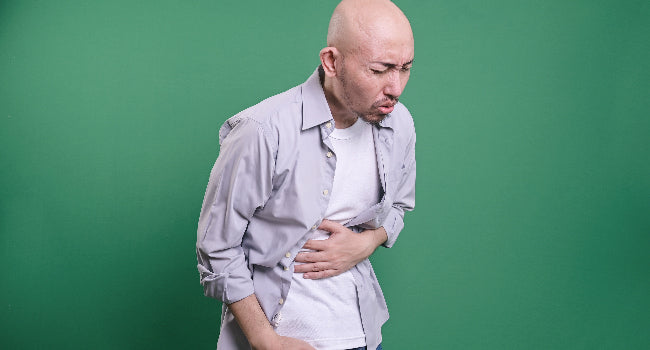Hemorrhoids, those swollen veins in the rectum and anus, are a common and often painful condition. If you're struggling with hemorrhoids, you're likely wondering, "How long do hemorrhoids last?" and "How can I find relief?"
This comprehensive guide will explore the duration of hemorrhoids, their causes, natural remedies, and when to seek medical attention. We'll also discuss the potential link between hemorrhoids and food intolerances, empowering you to take control of your digestive health.

Understanding Hemorrhoids
Hemorrhoids occur when the veins in the rectum and anus become swollen and inflamed. They can be internal (inside the rectum) or external (around the anus).
Common Symptoms of Hemorrhoids:
-
Pain or discomfort
-
Itching
-
Bleeding, especially during bowel movements
-
Swelling or a lump near the anus
Do Hemorrhoids Itch?
Yes, itching is a common symptom of hemorrhoids. The irritation and inflammation in the anal area can cause intense itching.
How Long Do Hemorrhoids Last?
The duration of hemorrhoids varies depending on several factors:

-
Severity: Mild hemorrhoids might resolve within a few days with home remedies, while more severe cases can last for weeks or even become chronic.
-
Treatment: Prompt and appropriate treatment can significantly shorten the duration.
-
Underlying Causes: Addressing contributing factors like constipation or straining during bowel movements is crucial for long-term relief.
Will Hemorrhoids Go Away on Their Own?
Mild hemorrhoids often resolve on their own within a few days with simple self-care measures like:
-
Sitz baths: Soaking the affected area in warm water.
-
Cold compresses: Applying ice packs to reduce swelling.
-
Over-the-counter creams and ointments: Containing ingredients like hydrocortisone or witch hazel.
Dangers of Bleeding Hemorrhoids: When to Seek Help
While occasional bleeding from hemorrhoids is common, it's important to consult a doctor if:
-
Bleeding is heavy or persistent.
-
You experience dizziness or weakness.
-
You have any concerns about your symptoms.
Food Intolerance and Hemorrhoids: The Gut Connection
Food intolerances or sensitivities can contribute to digestive issues like constipation, diarrhea, and inflammation, which can worsen hemorrhoid symptoms.
A food sensitivity test kit can help you identify specific foods that might be triggering your symptoms. By eliminating or reducing these trigger foods, you can potentially alleviate your hemorrhoids and improve your overall gut health.

Key Takeaways:
-
The duration of hemorrhoids varies depending on severity, treatment, and underlying causes.
-
Most hemorrhoids improve within a week with proper care.
-
Seek medical attention for severe or persistent symptoms.
-
Food intolerances can contribute to hemorrhoids, and a food sensitivity test can help identify triggers.
Remember, this article is intended for informational purposes only and should not be considered a substitute for professional medical advice. If you have any concerns about your health or are experiencing hemorrhoids, consult a qualified healthcare professional.
Frequently Asked Questions:
1. What causes hemorrhoids?
Hemorrhoids are often caused by increased pressure in the veins of the rectum and anus. This can be due to straining during bowel movements, pregnancy, obesity, or prolonged sitting.
2. Are there any home remedies for hemorrhoids besides the ones mentioned in the article?
Yes, other helpful home remedies include:
- High-fiber diet: Eating plenty of fruits, vegetables, and whole grains can help soften stool and prevent constipation.
- Increased fluid intake: Drinking plenty of water can also help soften stool and make bowel movements easier.
- Topical witch hazel: Witch hazel has astringent properties that can help reduce swelling and itching.
3. When should I see a doctor about my hemorrhoids?
If your hemorrhoids are causing significant pain, bleeding heavily, or not improving with home remedies, it's important to consult a doctor. They can recommend further treatment options, such as prescription medications or minimally invasive procedures.
4. Can certain foods make hemorrhoids worse?
Yes, foods that can contribute to constipation, such as processed foods, low-fiber foods, and dairy products (for those with lactose intolerance), can worsen hemorrhoid symptoms. Spicy foods can also irritate the anal area.
5. How can a food sensitivity test help with hemorrhoids?
A food sensitivity test can help identify specific foods that might be triggering digestive issues like constipation or diarrhea, which can exacerbate hemorrhoids. By eliminating or reducing these trigger foods, you can potentially improve your gut health and reduce hemorrhoid symptoms.


.png?v=1737390083)
.png?v=1737187409)


